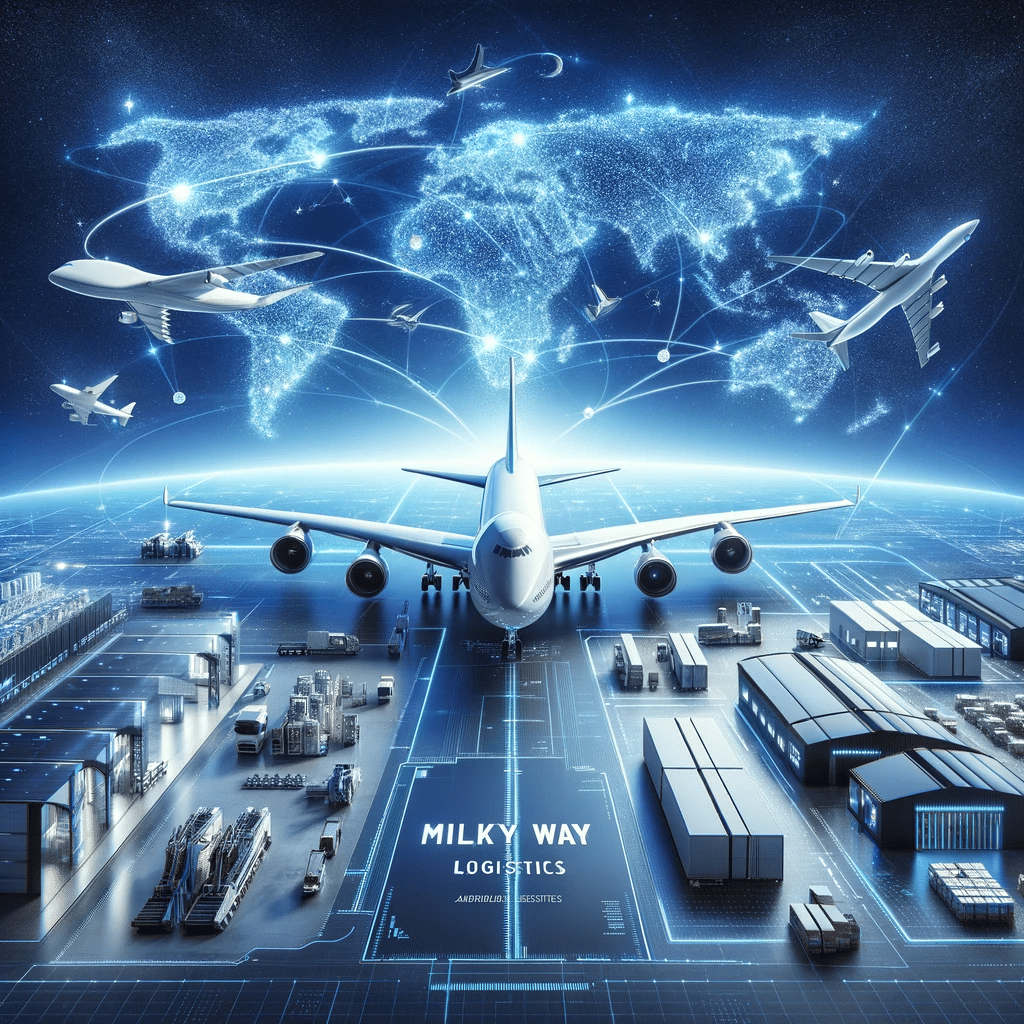
Milky Way Logistics and the Evolution of Global Freight Forwarding
Milky Way Logistics and the Evolution of Global Freight Forwarding
The transformation and evolution of logistics, particularly in the context of the United Kingdom’s trade history, offer a fascinating glimpse into how transportation methods have advanced over time. This progression has been pivotal for companies like Milky Way Logistics, a Freight Forwarding company based in the City of London, which excels in providing professional airfreight, sea freight, and road haulage from the UK. Understanding this history is crucial for comprehending the current landscape of international trade and the rise of air cargo in the UK’s logistics sector.
From Sails to Steam: The Maritime Legacy
In the 1800s, maritime trade was the backbone of global commerce, especially for the UK. Merchant sailing ships played a pivotal role, facilitating the import of goods from the Americas, Africa, and Asia. This era was marked by the advent of the steamboat in the early 19th century, a revolutionary development that significantly enhanced the efficiency of shipping. Steamers, by the late 19th century, were primarily used for transporting luxury items like coffee, tea, sugar, cotton, spices, and tobacco. However, these operations were far from the streamlined processes we see today. Lengthy port stays for loading and unloading, along with prevalent theft due to unattended goods, were common challenges.
Revolution through Containerization
A significant leap in maritime logistics came with the introduction of containerization and intermodal shipping. This innovation allowed for the seamless transfer of cargo containers across trucks, trains, and ships, drastically improving efficiency and security in the shipping industry.
The Emergence of Airfreight
As the logistics industry evolved, the need for speed and flexibility in delivery became more pronounced. Airfreight emerged as a solution, offering numerous advantages over maritime transport. Its flexibility allowed for more frequent departures and quicker recovery times for missed flights, making it a reliable option for businesses where delivery time was critical. The growth of online commerce and the demand for ‘just in time’ deliveries further bolstered the popularity of airfreight, making it a key player in global trade.
Airfreight vs Sea Freight
For time-sensitive goods, air cargo is often preferred due to its speed and efficiency. Unlike sea freight, which can be bogged down by disruptions and port congestion, air cargo provides a quicker and more direct route. Additionally, air cargo typically requires less packaging, leading to cost savings and reduced wastage. However, it’s not without limitations, such as capacity constraints and prioritization issues with passenger flights.
Economic Impact
The airfreight sector significantly contributes to the UK economy, with the Office for National Statistics reporting a contribution of £300 million and 70,000 jobs annually as of 2023. Conversely, maritime trade remains vital, handling approximately 95% of the UK’s imports and exports by volume and supporting a significant portion of the country’s Gross Value Added and employment.
The Way Forward
The logistics industry doesn’t adhere to a ‘one-size-fits-all’ approach. The diversity in transport modes offers varied advantages tailored to specific business needs. Both maritime and air transport have undergone substantial advancements, ensuring their viability as shipping solutions. Organizations like Logistics UK, representing all logistics modes in the UK, continue to work towards further advancements in this sector.
In conclusion, the journey of logistics from the era of maritime dominance to the contemporary rise of air cargo vividly illustrates the dynamic and evolving nature of global trade. This evolution is not just a testament to technological advancement but also to the adaptability and foresight of logistics companies, such as Milky Way Logistics. Operating from the bustling hub of the City of London, Milky Way Logistics has not only witnessed this transformation but has been an active participant in shaping the modern landscape of freight forwarding.
The transition from the days of steamboats to the modern era of airfreight highlights a pivotal shift in the logistics industry. The ability to move goods quickly, efficiently, and securely by air has revolutionized how businesses think about their supply chains, especially in an age where time is a critical factor. This shift is particularly evident in the context of the burgeoning e-commerce sector and the increasing demand for ‘just in time’ deliveries, which has made airfreight an indispensable component of global trade.
Moreover, the economic impact of these changes cannot be overstated. The airfreight sector’s contribution to the UK economy is significant, not only in monetary terms but also in job creation. At the same time, the enduring importance of maritime trade, handling the lion’s share of the UK’s import and export volume, remains a cornerstone of the nation’s economic infrastructure.
This duality of air and sea freight underscores the complexity of modern logistics. There is no one-size-fits-all solution in this industry; different modes of transport offer their unique advantages, catering to the diverse needs of businesses. Companies like Milky Way Logistics are at the forefront of leveraging these modes to provide tailored logistics solutions, balancing efficiency, cost, and speed for their clients.
As we look to the future, the logistics sector is poised for further advancements. With challenges such as environmental sustainability, digital transformation, and the need for greater supply chain resilience, companies like Milky Way Logistics are not just adapting but leading the way in innovation. This proactive approach is crucial in an industry that is a key enabler of global commerce.
In sum, the story of logistics, from sailing ships to cargo planes, is a narrative of progress and adaptation. It is a story in which Milky Way Logistics plays a pivotal role, demonstrating agility and foresight in a rapidly changing world. The company’s commitment to excellence in airfreight, sea freight, and road haulage, rooted in a rich historical context, positions it not just as a participant in the logistics industry, but as a leader shaping its future. This commitment ensures that Milky Way Logistics will continue to be a vital link in the chain of global trade, driving forward with innovation, efficiency, and a keen eye on the evolving needs of the market.
#MilkyWayLogistics #AirCargoUK #SeaFreightEvolution #LogisticsUK #FreightForwarding #UKTradeHistory #AirFreightAdvancement #MaritimeTrade #GlobalLogistics #TransportationInnovation


